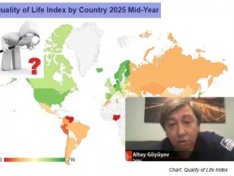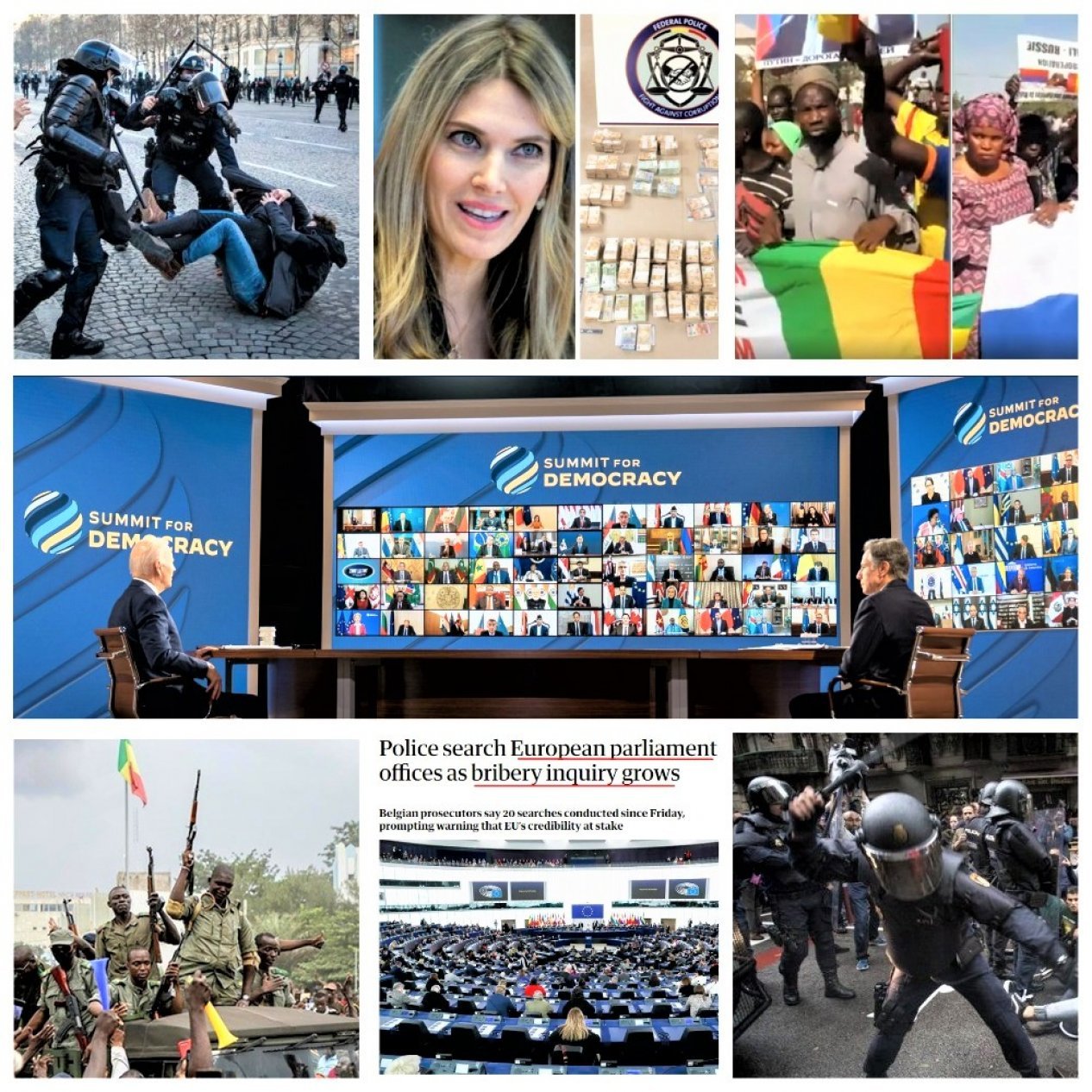
As is known, on March 30, the Second Summit for Democracy organized by the US started online. The number of countries invited to this year's summit, initiated by the Biden Administration, has reached 120. The ranks have been "expanded" with Bosnia and Herzegovina, Gambia, Honduras, Cote D'Ivoire, Liechtenstein, Mauritania, Mozambique and Tanzania (8 countries) not invited to the 1st Summit held in December 2021.
With no official capital, economy built on seabird feces (guano), political system with a population of 10,000, and form of governance still undefined, is it not surprising that Nauru is included in this list?
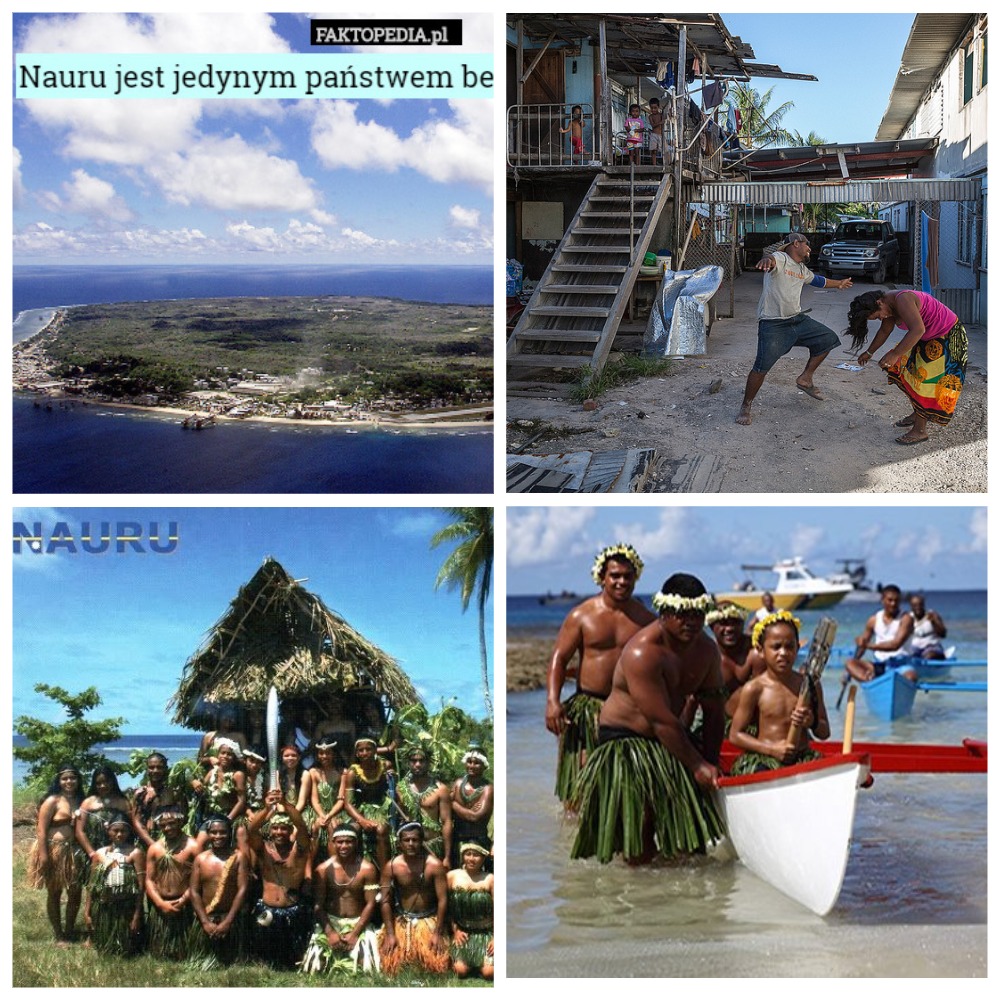
Or, what is special about the island-state of Tuvalu, which is a coral island, has a population of 9,000 and is governed by the orders of the mayor?
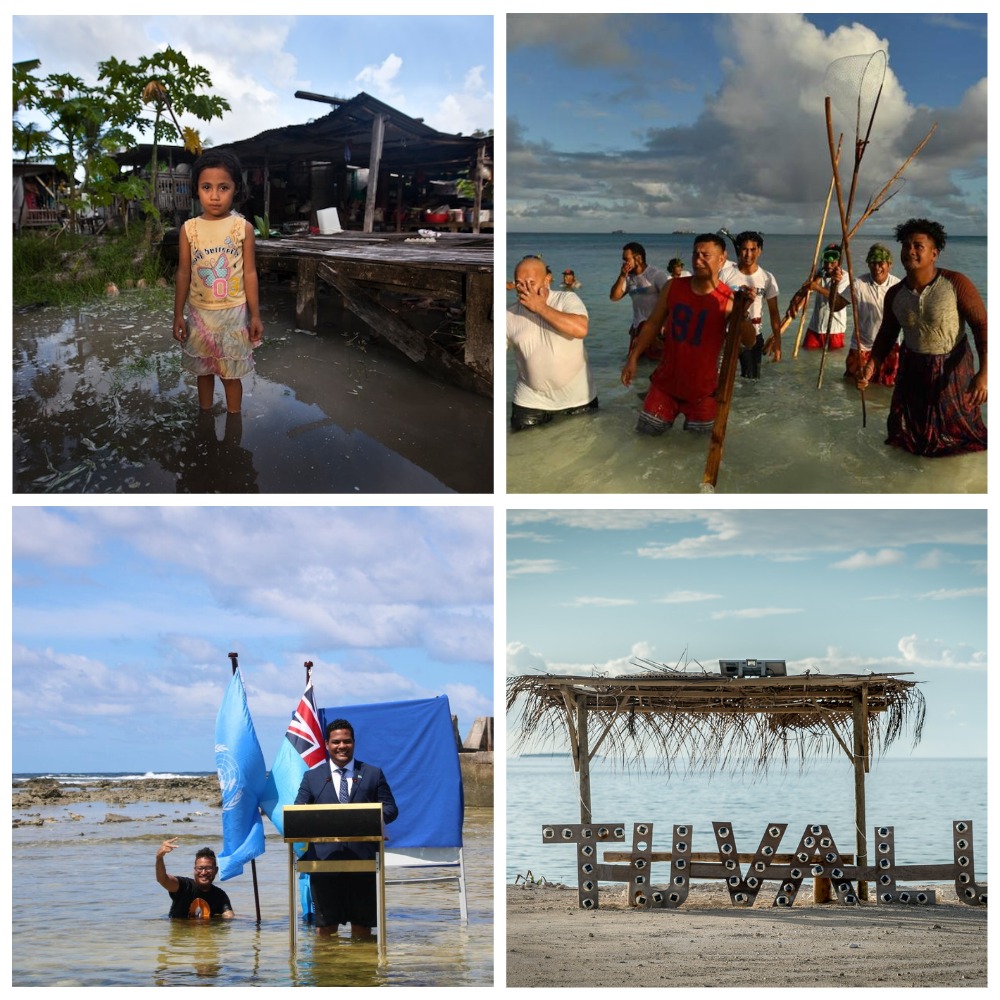
It is no secret that the place and name of dwarf tribal states in the world political geography, such as Fiji, Kiribati, Marshall Islands, Micronesia, Palau, Papua, Solomon Islands, Tonga, Vanuatu, which have the same political and administrative management, are unknown to 90+ percent of the world community.
It is interesting that the leaders of these island-states are not even able to distinguish between separatist-criminal, terrorist regimes and countries with a normal democratic system in the world. For example, Nauru, Tuvalu and Vanuatu recognize Georgia's Abkhazia and South Ossetia as independent states with a 100-year history (?). Or, the invitation of Washington's close allies, the Philippines and Taiwan, stems from anti-China rhetoric. The Philippines ranks one of the lowest on the democracy index among 15 countries in the East Asia and Pacific region. And Taiwan is a "de jure" territory of China, this approach itself is an example of American support for separatism, not democracy.
As for the democracy of the countries invited to the summit, it is not even possible to talk about reforms in most of them to have normal political structures, provision of democratic institutions, etc..
Let's pay attention to the reports published last year:
- In the "2022: Democracy Index" report of "The Economist, Intelligence Unit", the absolute majority of the countries invited to the summit have the worst position in terms of democracy, human rights, freedom of expression, the state of the judiciary and other criteria. For example, Uganda ranked 99th, Nepal 101st, Gambia 102nd, Nigeria 105th, Mauritania 108th, Angola 109th, Niger 112th, Gabon 118th, Ethiopia 122nd, Iraq 124th 1st, Burkina Faso 127th, Togo 130th, Zimbabwe 132nd, Democratic Republic of Congo 136th, Guinea 145th, Burundi 148th, Libya 151st, Equatorial Guinea 158th, Congo ranked 162nd, Central African Republic ranked 164th.
- At least 40 percent of the countries invited to the summit were evaluated by the "Freedom House" organization as countries with the worst democratic standards last year. In the democracy and human rights report of the organization in 2022, it can be seen that the situation of most of those countries has worsened according to the democratic indices. Countries such as Niger, Zambia, Suriname, Trinidad and Tobago, Sudan, Benin, Congo, Guinea, Mali, Nauri, Mozambique and Tanzania are in the group of unsatisfactory states according to all indicators of democratic criteria. ("Freedom in the World 2022". P. 18-19).
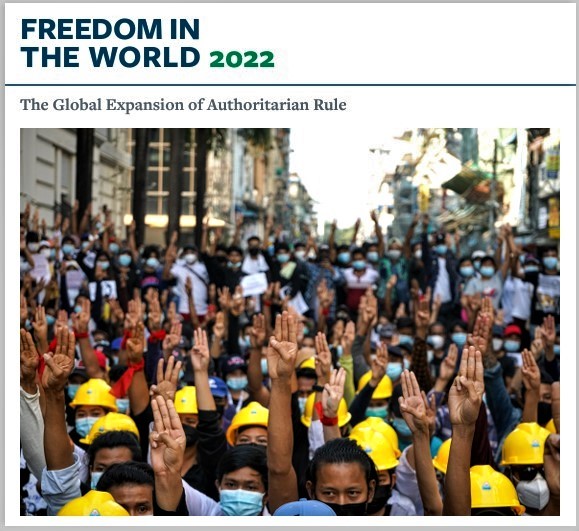
- The 2022/2023 annual report "The state of the world's human rights" of "Amnesty International" includes inter-tribal conflicts and clashes, as well as serious violations and abuses of human rights, increase in the number of conflict victims, ordinary basic living, as similar aspects characteristic of the countries of the African region deprivation of rights, sharp deterioration of the rights of millions of people to food, health and adequate living conditions, criminal gangs-tribal associations using various bloody tactics to silence peaceful opposition, banning and violent dispersal of protests, threats of human rights defenders, activists, journalists and opposition representatives being subjected to fear and harassment, including arrests. Attacks against civilians have intensified in the eastern regions of Congo, where armed groups killed more than 1,800 civilians last year. In Ethiopia, targeted attacks by government forces and armed groups against civilians have led to mass killings. Dozens of people were killed in armed clashes in Burkina-Faso, Niger, Nigeria. In Guinea, Kenya, Nigeria, Senegal, Sierra Leone, Somalia and Sudan, a large number of protesters have been killed as a result of excessive use of force by security forces.
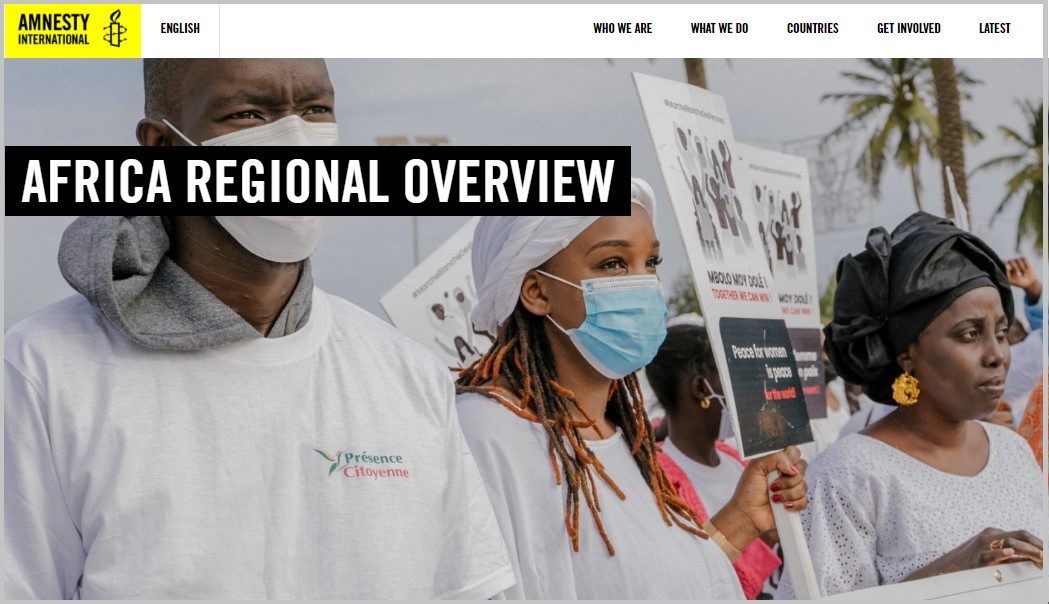
The list can be extended, but these facts fully reflect the picture, and the absolute majority of the mentioned countries are considered representatives of Biden's democratic camp at the Democracy Summit and discuss human rights.
About Armenia, the summit participant...
In the aforementioned report of the "Amnesty International" organization, the social-political-democratic situation in Armenia was also assessed as unsatisfactory. In the summary of the report, the main points related to Armenia are the use of disproportionate force by law enforcement agencies during anti-government protests, restriction of freedom of speech and media, prosecution of hundreds of people for insulting officials, discrimination based on sexual orientation and gender identity, issues related to the inadequacy of laws and other circumstances.
According to the authors of the report,
In one of the violent anti-government clashes on June 3, 2022, the police used stun grenades and disproportionate force to prevent thousands of protesters from approaching the Armenian parliament building. Dozens of people were detained for participating in "mass violence". At least 11 journalists were injured while covering the protests, and other journalists were prevented from covering the protests.
In the section on freedom of expression in the report of "Amnesty International", it is noted that the authorities have increased criminal prosecutions due to justified criticism of the media, resulting in a disturbing situation in the field of freedom of speech. More than 200 criminal cases have been opened on charges of insulting public officials after the amendments to the legislative act, which stipulates criminal liability for insulting public figures, have come into effect.
The year 2022 was also "rich" in terms of the number of criminal cases and arrests in Armenia. Last year, the number of criminal cases initiated against political and public figures and activists increased. In May of last year, a criminal case was initiated against Avetik Chelabyan, a socio-political figure and co-founder of the "Arar" Foundation, under the charge of "forcing to participate in rallies, including illegal gatherings, marches or demonstrations, or coercing with threats" and he was detained.
The well-known blogger and producer Armen Grigoryan was arrested for political reasons and he died in the courtroom.
In mid-November, the deputy chairman of the Republican Party of Armenia, Armen Ashotyan, was detained as an accused person. source
In June 2022, more than 2100 people were detained during the protests of the resistance movement. The police opened fire on the protesters and used stun grenades. As a result, dozens of people were injured. source
Pashinyan's administration is merciless against bloggers and social media representatives who criticize the government on social networks. Last year, the leader of the Armenian Independence Movement, Edgar Ghazarian, was attacked by government-ordered racketeering groups and suffered head injuries. The politician called it a political order of Pashinyan's government. source
The "Committee for the Protection of Freedom of Speech" organization of Armenia recently released its report for 2022 on the violation of freedom of speech and expression, media activities and rights of media employees in the country. According to the report, attacks and physical violence against media organizations and their employees continued last year. In 2022, 14 cases of physical violence against journalists were recorded, and the number of cases of pressure against media workers was 55. In 2022, 115 violations of the right to access and disseminate information were registered, which is 16 more than in 2021. The chairman of the committee, Ashot Melikyan, said that the insulting behavior of officials and employees of the law enforcement agency against journalists remains the same as in previous years. source
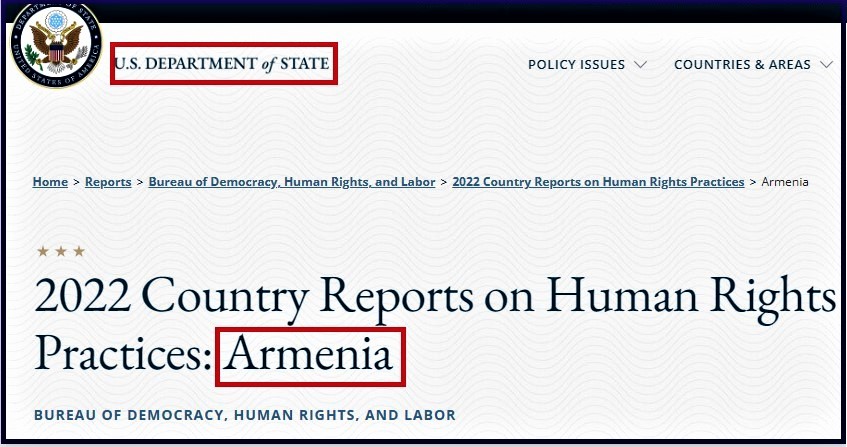
In 2022, the European Court of Human Rights (ECtHR) issued 21 decisions on 31 applications against Armenia. In the decision, cases of illegal restriction of human rights and freedom, violations of personal integrity and protection from inhuman and degrading treatment were classified as the most illegalities. According to information, Armenia is one of the countries of the Council of Europe with the most complaints addressed and reviewed. (1250 applications or 1.7% of the total applications of the EU). source
The US State Department's "Human Rights 2022" report highlights the following as the main problems related to Armenia:
- being subjected to torture by members of the security forces;
- harsh prison conditions;
- unjustified arrests;
- serious problems related to judicial independence;
- arbitrary or illegal interference with privacy;
- restriction of freedom of expression;
- violence or threat of violence against civil society figures and LGBT members and other crimes; source
The 2022 report of the Human Rights Watch organization noted the persecution of members of parliament and state officials in Armenia against members of civil society institutions, human rights defenders and social activists, as well as cases of physical violence against journalists in 2021. In the report, the speaker of the parliament prohibits the pro-opposition media from filming, makes false charges against the chairman of the Yezidi Human Rights Center Sashik Sultanyan. The report also mentions widespread discrimination against the Yezidi minority in Armenia, LGBT members facing violence, violation of the right to freedom of expression, etc. which are contrary to democratic principles.
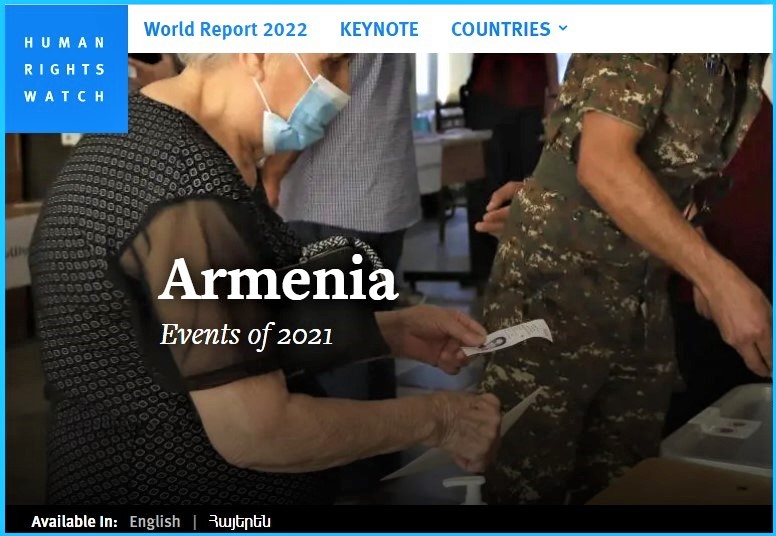
In the report presented by the monitoring group of Azerbaijan's human rights organizations on the facts of violations of human rights and freedoms in Armenia, the cases of violations of human rights and freedoms in Armenia during 2020-2022, brutal treatment of the civilian population, persons detained during demonstrations and criminal cases against journalists the situation are reflected.
Despite such reports, the US has been inviting Armenia to the "Summit for Democracy" for two years in a row. An occupying, terrorist-supporting, anti-democratic state is putting the US leadership in a difficult position by showing its hypocritical and deceitful face at the summit. Pashinyan's refusal to sign a statement on the Russian-Ukrainian war is considered a betrayal of Washington and an indicator of the hypocritical face of the Armenian leadership. With this step, Yerevan did not hide the fact that it is not a defender of democratic values and human rights, but is on the side of occupation, bloodshed, separatism, and supports Russia's policy.
Such positions and approaches of Armenia and other such countries also expose the "democracy summit" of the United States. Well-known American public opinion leaders have already acknowledged this and emphasize that the summit has become a pointless and useless gathering. For example, in an article published in the US media outlet "Responsible Statecraft", the author Daniel Larison notes that the first such summit was a pointless exercise to demonstrate Biden's activities to the world, and the second time such an illogical event raises questions. The author surprisingly emphasizes that the removal of Turkiye and Hungary, NATO allies, from the list of invitees is incomprehensible. The US and other host countries should clarify and explain this kind of discrimination they allow.

Larison alludes to the fact that the summit, accompanied by speeches praising the host country, hypocrisy and favoritism, instead of solving serious problems related to democracy in the world, killed democracy by turning a blind eye to the half-hearted policies of anti-democratic and authoritarian countries in Asia and Africa.
What is the importance of the summit, how did the decisions taken at the first Summit in 2021 affect world democracy and the democratic climate in the participating countries?
The real picture is that the three topics on the agenda of the first " Summit for Democracy " held on December 9-10, 2021 - defense against authoritarianism, fight against corruption and ensuring human rights - have not improved in the last year.
We emphasized above that the democratic principles and criteria have deteriorated in the vast majority of the "summit countries" in the 2022 reports of international organizations on democracy and human rights. source
At the same time, in the period after the first Summit, the cases of corruption in most of the "allies" of the United States have increased.
According to a report by the International Monetary Fund (IMF), tribal and inter-clan corruption has deepened in African and Latin American countries and led to an increase in transnational crimes. The struggle for wealth is accompanied by bloody clashes for power. According to IMF expert reports, corruption risks in Chile, Botswana, Barbados, Panama, Dominican Republic, Costa Rica, Niger, Nigeria, Gambia, Cote d'Ivoire, Ghana, Senegal, Burkina Faso, Solomon Islands, Trinidad and Tobago and other countries remain a threat. Similar characteristics of corruption crimes in those countries are drug trafficking, money laundering, tradition of bloody clashes for economic wealth, failure of economic laws, unequal distribution of wealth based on the orders of various state officials, etc.

Also, in 2022, there were corruption scandals in the United States and the European Union. Other congressmen Frank Pallone, Adam Schiff, Robert Dold, Brad Sherman, Barbara Boxer are also named in the criminal case against Senator Menendez. There are hundreds of materials published by the world media about the exposure of the vice president of the European Parliament Mrs. Eva Kaili and a large corruption network that cooperated with her, the arrest of several EU deputies, the deputies and partners accused of colluding with the officials of Greece, France and other countries in corruption. source
Apparently, after Joe Biden's anti-corruption recommendations to the participating countries at the first Summit, corruption cases have increased in most countries, especially the US.
In the field of defense against authoritarianism, which is another goal of the "Summit countries", the situation worsened instead of improving over the past year. In many countries, in America, Asia and Africa, coups, uprisings, bloody clashes, imprisonment and torture have led to the strengthening of authoritarianism.
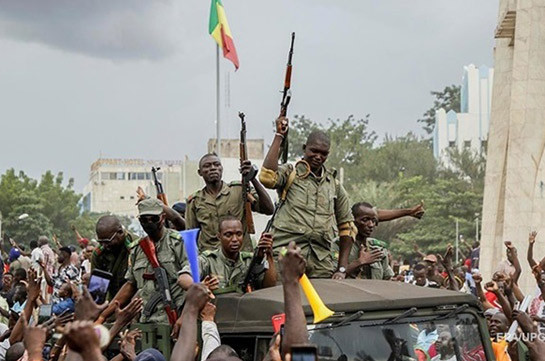
According to the report "Alert 2022! Report on conflicts, human rights and peacebuilding" published with the support of the UN, Africa was the main region where socio-political crises, conflicts and torture took place. Ethiopia, Guinea, Kenya, Mali, Morocco, Sahara, Nigeria, Sudan, Algeria, Burkina Faso, Côte d'Ivoire, Ethiopia, Tanzania, Tunisia, Uganda, Central Africa, Equatorial Guinea, Eritrea, Zambia, Niger, Nigeria and Zimbabwe bloody murders by the armed forces against people protesting against the authoritarian rule of the government, increased repression against social activists and the opposition demanding democracy, strengthening of violent interference with demands related to electoral reform, and deepening of cases of discrimination among people were observed.
Such characteristic cases were also recorded in Colombia, Haiti, Mexico, Venezuela, Peru, Bolivia, Chile, Salvador, Guatemala, Honduras and Nicaragua. Also, in Myanmar, India, the Philippines, Indonesia, Thailand, Bangladesh and other countries from Asia and the Pacific, there are cases of massive violations of human rights and increasing cases of torture. ("Alert 2022! Report on conflicts, human rights and peacebuilding. Pages 15-20).
The presence of USAID and its pro-Armenian leader Samantha Power as organizers of the event, the presence of NED (National Endowment for Democracy), which supports the scenario of chaos and provocations and bloody clashes in various regions, as well as the special role of George Soros, leaves no room for doubt about who and what the "summit" serves. The US aims to create an image of "democracy" and artificial imitation by bringing together the countries that "emerge from its overcoat."
The anti-Turkish phobia of the summit can be clearly felt. The exclusion of a country with huge democratic traditions like Turkiye, Azerbaijan, the leading country of the South Caucasus, members of the Organization of Turkic States, and Hungary, which has become a member of this organization, as well as inviting countries far from democracy and where fundamental human rights are violated, to the event, exposes the anti-democratic nature of the summit.
In the end, let's emphasize that democracy is not the private property of any country, the powers and poles that consider themselves the owners of the world, but democracy is the common values of all countries, humanity and societies. From this point of view, the participation of a country in the "Summit for Democracy" does not indicate its democratic image and commitment to the principles of democracy.



